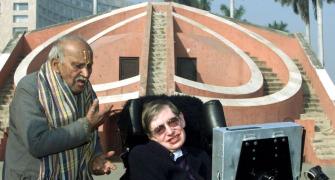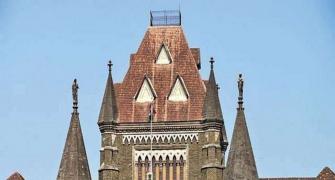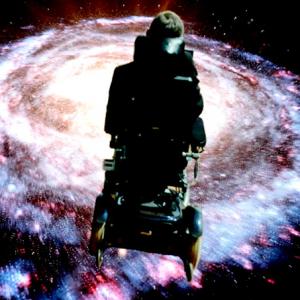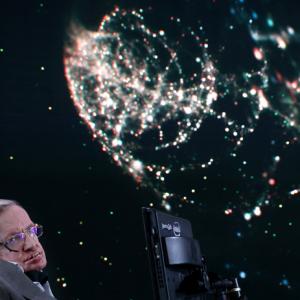The average survival time for those suffering from ALS is 3 years!
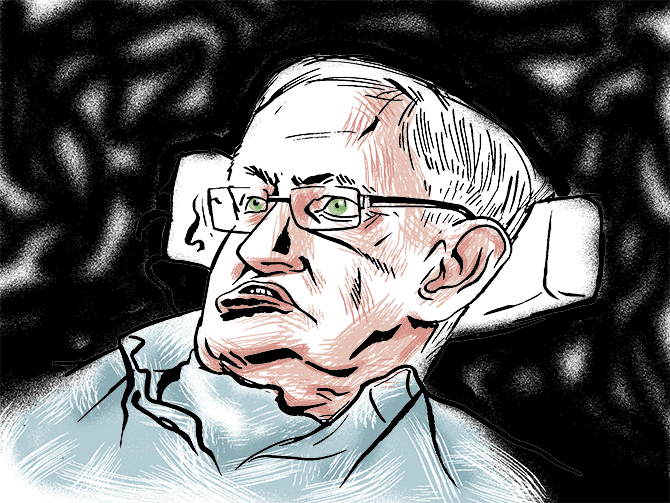
Illustration: Dominc Xavier/Rediff.com
Eminent physicist Stephen Hawking died on March 14 at age 76.
He was not supposed to have survived past his 20s.
Hawking was diagnosed with ALS in 1963 when he was only 21. How he spent his life with ALS -- the disease that became known widely across the world with the ice bucket challenge of 2014 -- for more than five decades has mystified many.
What is ALS?
ALS, or amyotrophic lateral sclerosis, is a progressive neurodegenerative disease that affects nerve cells in the brain and the spinal cord.
It is also known as motor neurone disease (MND) and Lou Gehrig's disease.
According to ALS Association, 'A-myo-trophic comes from the Greek language. "A" means no. "Myo" refers to muscle, and "Trophic" means nourishment -- "No muscle nourishment." When a muscle has no nourishment, it "atrophies" or wastes away.'
It adds, 'The progressive degeneration of the motor neurons in ALS eventually leads to their demise. When the motor neurons die, the ability of the brain to initiate and control muscle movement is lost. With voluntary muscle action progressively affected, people may lose the ability to speak, eat, move and breathe. The motor nerves that are affected when you have ALS are the motor neurons that provide voluntary movements and muscle control.'
In most cases ALS is sporadic, which means 'it may affect anyone, anywhere'.
But ALS usually strikes people between the ages of 40 and 70, which made Hawking's case rare to begin with.
What causes ALS?
The cause of ALS is not known in 90 to 95 per cent of the cases.
Only about 5 to 10 per cent of the cases are caused by familial ALS.
What is the cure for ALS?
No cure for ALS is known.
According to the ALS Association, 'Although the life expectancy of a person with ALS averages about two to five years from the time of diagnosis, this disease is variable, and many people can live with the disease for five years and more.
'More than half of all people with ALS live more than three years after diagnosis.
'Once ALS starts, it almost always progresses, eventually taking away the ability to walk, dress, write, speak, swallow, and breathe and shortening the life span. How fast and in what order this occurs is very different from person to person.'
It pegs the average survival time at 3 years, adding, 'About 20 percent of people with ALS live 5 years, 10 percent will survive 10 years and 5 percent will live 20 years or more.'
How did Hawking survive ALS for more than 50 years?
'The honest answer is, we don't have a clue,' Jeffrey Rothstein, professor of neurology and neuroscience at Johns Hopkins and Director of the Robert Packard Center for ALS Research, told The Daily Beast. 'I've had patients die three months after a diagnosis, and I've had others live 27 years. The disease runs its own course. It's very individual.'
Gene mutations may determine who survives ALS for how long, but even taking that into account 50 plus years is remarkable.
Another factor, Rothstein said, could be Hawking's use of a ventilator.
He explained to The Daily Beast, 'People die from ALS because they can't breathe [the weakening motor neurons weaken the patient's lungs, gradually reducing their breathing capacity -- inhaling oxygen as well as exhaling carbon dioxide]. When the carbon dioxide builds up, it makes your blood acidic. That affects your heart, and you have a heart attack.'
Though the use of a ventilator increases life span, most people don't opt for it because of quality of life concerns and the pressure on the care givers.
In Hawking's case, it is not just his longevity that is remarkable. It is also his mind.
Robert Kalb, director of the Les Turner ALS Research and Patient Center at Northwestern Medicine, told The Daily Beast that though ALS is a motor disease, scientists are learning that as the disease progresses, patients often develop cognitive problems with thinking and memory.
He added, 'Hawking has lived with this disease so long, and yet he still comes up with these brilliant ideas. The fact that he has no problems with memory and thinking and cognitive function is remarkable.'
In Hawking's case, it is also clear that his steely will played a role in his survival.
He chose not to dwell on the disease. 'It is a waste of time to be angry about my disability. One has to get on with life and I haven't done badly. People won't have time for you if you are always angry or complaining,' he had once said.
He had also said, 'I have lived with the prospect of an early death for the last 49 years. I'm not afraid of death, but I'm in no hurry to die. I have so much I want to do first... I regard the brain as a computer which will stop working when its components fail. There is no heaven or afterlife for broken down computers; that is a fairy story for people afraid of the dark.'


